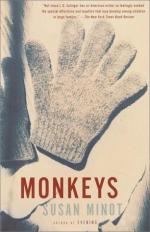|
This section contains 867 words (approx. 3 pages at 300 words per page) |

|
SOURCE: Davenport, Gary. “True Merchants of the Untrue.” Sewanee Review 101, no. 2 (spring 1993): 300–07.
In the following excerpt, Davenport explores the narrative significance of historical context in Folly.
In 1850 Alessandro Manzoni published an essay called Del romanzo storico (it first appeared in English in 1984 as On the Historical Novel). Nineteenth-century admirers of historical fiction who read that essay must have been disheartened when the author of I promessi sposi declared the genre hopelessly unworkable, declaring that faithfulness to history and freedom of invention are inherently contradictory principles. Naive as this judgment might sound to a poststructuralist critic, Manzoni nonetheless correctly assumes that even a sophisticated reader expects a historical novel to be faithful to the past—just as he expects a novel with a contemporary setting to be faithful to the present. (Ian Watt and others have even defined the novel—as distinct from romance, fantasy, fable, and the like...
|
This section contains 867 words (approx. 3 pages at 300 words per page) |

|


